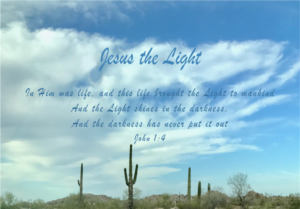
Christ is the end of the law to everyone who believes
Rom.10:4
As well as the poor, the needs of genuine gospel workers are to be supplied by loving giving. Even the Lord Jesus had the physical needs of this life provided in this way. Lk.8:3: “And many others were contributing to their support out of their private means.”
Those who benefit in spiritual things “are indebted to minister to them also in material things” -Rom.15:27. Paul was helped many times in this way so he could continue his good work of teaching the Word of God. Phil.4:14,16: “You have done well to share with me in my affliction. You sent a gift more than once for my needs.”
Believers must not neglect the work of God or those doing it. True servants of God are depending upon God alone to direct His people to care for their needs. Lk.10:7: “The laborer is worthy of his wages.”
3 Jn.5-8: “Dear friend, you are faithful in what you are doing for the brothers, even though they are strangers to you. They have told the church about your love. You will do well to send them on their way in a manner worthy of God.
“For they went out for the sake of the Name, accepting nothing from the pagans. Therefore we ought to support such men, so that we may be fellow workers with the truth.”
Believers are the ones to supply the needs of genuine gospel workers. 1 Cor.9:11-14 says: “If we sowed spiritual blessings among you, is it too much if we reap material things from you? Those who attend regularly to the altar have their share from the altar. So also the Lord directed that those who proclaim the gospel to get their living from the gospel.”
Rom.15:27: “For if the Gentiles have shared in their spiritual things, they are indebted to minister to them also in material things.” Gal.6:6 says: “Let the one who is taught the Word share all good things with him who teaches.”
But we must give, not by force or unwillingly, but out of love for God, His kingdom, and His people. In this way, God is glorified and the gospel workers are encouraged and blessed by the love that gives.
Giving is a work of mercy, compassion, and love, not of obligation by law. Love moves a man from within, filling his heart with goodwill towards others. Law only regulates from without by placing demands upon a man whether he is full of love or not.
Obligation through law can never be a worthy substitute for the delight of giving from a loving heart. True Christian giving is never by compulsion. It is a voluntary response of the heart to the love of God and out of love to men.
This principle of love governing godly giving is summarized in 2 Cor.9:7: “Each man should give what he has decided in his heart to give, not reluctantly or under compulsion, for God loves a cheerful giver.”
The words “compulsion,” and “reluctantly” result from the demands of a law requiring a man to give. Law makes no allowance for what a man may have decided in his own heart.
No one who feels forced to do something does it cheerfully. Obligation can never be a reason for giving that is approved by God in a Christian.
No law can regulate love. Law rather cancels what would otherwise “overflow in the wealth of liberality” -2 Cor.8:2. It restricts the workings of love through the Spirit of God in a man’s heart.
These believers in Macedonia noted in 2 Cor.8:2-4, even in the midst of “the most severe trial, their overflowing joy and their extreme poverty, welled up in rich generosity. They gave as much as they were able, and even beyond their ability. Entirely on their own, they urgently pleaded with us for the privilege of sharing in this service to the saints.”
What was the secret of their selfless giving? “They first gave themselves to the Lord” -2 Cor.8:5. Their lives were not their own; everything they were and had belonged to God. Christ had given all for them; they in turn gave all to Christ.
Love that pours out generously cannot be limited to a demand to give 10% of one’s resources. The law of tithing that obligated the nation of Israel to give a tenth to the priests of Levi is not a requirement for Christians.
When the priesthood changed from that of Aaron and the Levites to that of Christ and the church, that law was cancelled. It has no relevance for a Christian under the New Covenant. The law of tithing for Israel does not apply to the church.
Heb.7:12: “For when the priesthood is changed, of necessity there takes place a change of law also.” Heb.7:18: “There is a setting aside of a former commandment because of its weakness and uselessness.”
The law of tithing has been changed because it is unable to produce that glad giving out of love which God delights in. The ceremonial laws of the Old Covenant do not apply to Christians under the New Covenant.
The New has replaced the Old. Heb.8:13: “When He speaks of ‘A New Covenant,’ He has made the first obsolete.” Christians do not have an earthly temple building in Jerusalem. There exists no special priestly tribe of Levi within the church.
No animal sacrifices are burned on the altar by Aaron’s sons. Not an earthly building, but believers in the Lord Jesus themselves are the “holy temple in the Lord, a dwelling of God in the Spirit” -Eph.2:21,22.
No special priestly tribe exists in the church because every single Christian is now called “a royal priesthood…a people for God’s own possession” -1 Pet.2:9. No sons of Aaron are found in the churches who offer up animal sacrifices. Rather, every Christian offers up “spiritual sacrifices acceptable to God through Jesus Christ” -1 Pet.2:5. Since all Christians are now equally spiritual priests, there no longer remains any special priests for tithes to be paid to.
Heb.10:9: “He does away with the first that He may establish the second.” That first priesthood of Levi and the tithes connected with it under Law has been taken away. It has served its purpose. Christ has fulfilled all that the first priesthood was only a dim shadow of. Don’t let anyone deceive you. Jesus Christ is not pressing you for tithes.
The Lord Jesus has replaced that with His New Covenant of grace and freedom. The Law of tithing for Israel by compulsion under that first covenant has been taken away. Christians now give as they have decided in their heart: gladly, generously, and without obligation.
2 Cor.9:7: “Let each one give as he purposes in his heart, not grudgingly or under compulsion, for God loves a cheerful giver.” And we give because we love, not for any other thing. We don’t give to be given to in return. We don’t give because we think we can win God’s favor by doing so. Giving is not to be motivated by guilt or pride of appearing spiritual.
We give because we love; we love God and the people He has made in His own image. That is genuine giving that the Lord delights in. Let this guide all that you do.
Copyright Steve Phillips 2020








